Bob Bradshaw’s a bit of a regular around these parts. We’ve reviewed four of his albums and this is his third contribution to our High Fives feature. His songs are exceptional and original and his albums are examples of sequencing a series of songs to create a coherent entity, particularly on his 2019 album “Queen of the West”.
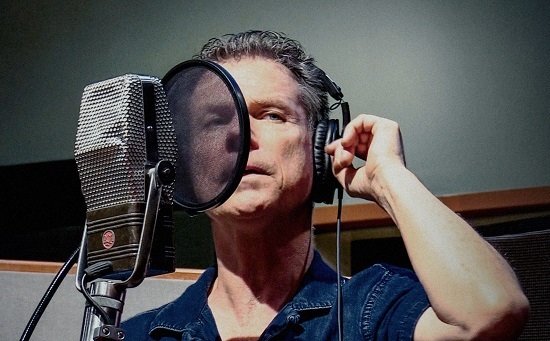
Podcasts were a life-saver for me over the past year and a half, especially music podcasts. Here’s my high five, with examples (sometimes drawn from previous years but I heard them for the first time in 2021).
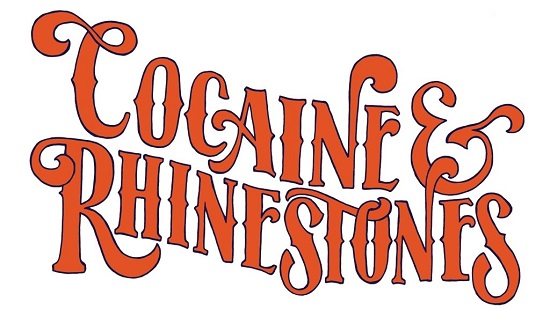
Cocaine and Rhinestones.
Tyler Mahon Coe’s wildly opinionated, rip-roaring podcast about the history of Country music is a trip. His use of sometimes obscure song clips to illustrate points is masterly. He’s devoting the whole of the present season to George Jones. This episode from the first season about Buck Owens and Don Rich is terrific:
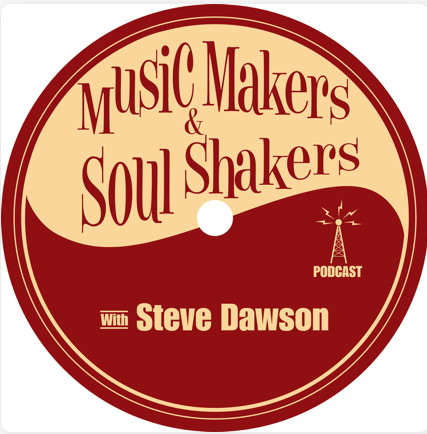
Music Makers and Soul Shakers.
Steve Dawson is a fine guitar player/producer himself and this is one of the best nuts-and-bolts podcasts for and about musicians I’ve heard. There’s some great stories in this episode with Marc Ribot:
https://www.makersandshakerspodcast.com/podcast/8-marc-ribot
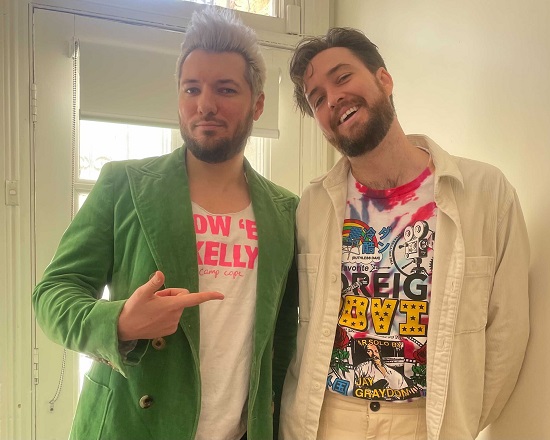
My Favorite Album.
Host Jeremy Dylan has interviewed Daniel Lanois, Mitchell Froom, and Max Weinberg, among others. In this episode the great Nick Lowe explains how he puts a live show together:
https://myfavoritealbum.libsyn.com/338-nick-lowe-breaks-down-his-live-show
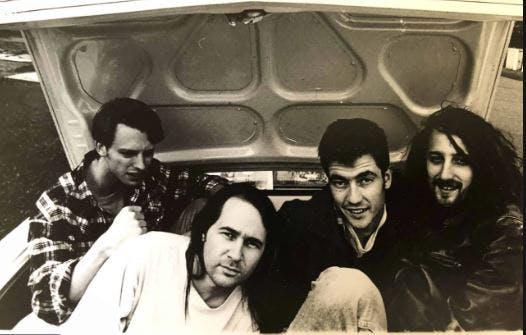
Love That Album.
Maurice Bursztynski’s wide-ranging, low-key approach is perfect for discovering new music, or revisiting old favorites. Steve Berlin, from Los Lobos, talking about their 2021 album ‘Native Sons’ is a good place to start:
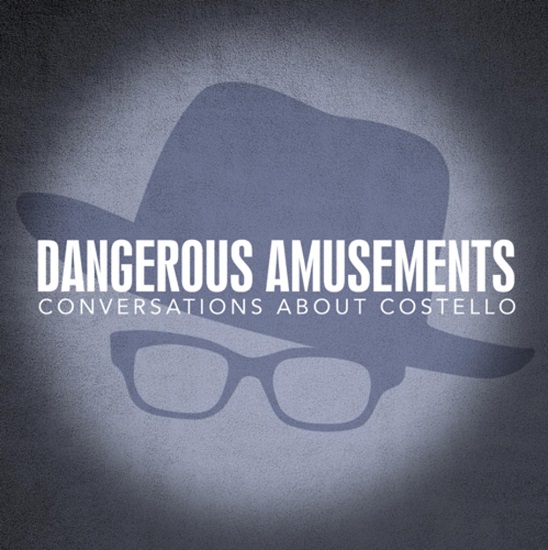
Dangerous Amusements: The Elvis Costello Playlist. Perhaps only Dylan or Bowie are worthy of this level of scrutiny (and there are podcasts about both that I don’t think much of.) Fellow musicians, journalists and music business folk discuss (with host Stu Arrowsmith) what Costello has meant to them over the years, and pick one song from each of the five decades Costello has been producing his idiosyncratic catalogue. There’s plenty good stuff in this interview with Glen Colson who did publicity and promotion for Costello in the early years:
https://podcasts.apple.com/il/podcast/glen-colson/id1535324499?i=1000527944399&l=iw
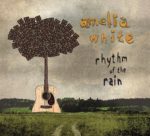 No, there’s no sign of a cover of The Cascades’ 1962 hit here; it’s all very much contemporary Americana. Amelia White’s style is very distinctive, and this is emphasised by the spontaneous feel of “Rhythm of the Rain”, which was made in four days at a very turbulent time in Amelia’s life. When she growls ‘Don’t think too much, people’ at the beginning of the title song, you can take a literal interpretation or a sarcastic one. Either works, it just depends wahich song you’re listening to. It’s certainly never going to be described a bundle of laughs, with “Yuma” and “Sugar Baby” dealing with addiction and “Sinking Sun” staring into depression.
No, there’s no sign of a cover of The Cascades’ 1962 hit here; it’s all very much contemporary Americana. Amelia White’s style is very distinctive, and this is emphasised by the spontaneous feel of “Rhythm of the Rain”, which was made in four days at a very turbulent time in Amelia’s life. When she growls ‘Don’t think too much, people’ at the beginning of the title song, you can take a literal interpretation or a sarcastic one. Either works, it just depends wahich song you’re listening to. It’s certainly never going to be described a bundle of laughs, with “Yuma” and “Sugar Baby” dealing with addiction and “Sinking Sun” staring into depression.
The musical stylings are pretty diverse, ranging from the adult-oriented-rock feel of “Sinking Sun” and “True or Not” to the laid-back Crazy Horse feel of “Supernova”. The album has a more raw, rockier edge than last year’s “Home Sweet Hotel”; although “Sugar Baby” opens with a menacing, ”Deliverance”-style banjo and eventually moves through the gears to “Sticky Fingers”-era Stones. Then there’s the title song, with a backbeat, swampy texture, and a sense of oppression and foreboding contrasted with the folky string band styling of the album’s closer which is enhanced by some nice Hammond organ.
There’s one song that stands out, even on an album packed with powerful songs and performances, and it’s a co-write with Lorne Entress and Lori McKenna. The skittering rhythms of “Said It Like a King” make the song feel like it’s rushing uncontrollably towards an unpleasant revelation; I may be looking for examples of this everywhere at the moment, but this song does sound like it might have been partly inspired by the leader of the free world. It’s about bullying and pulls together vignettes featuring a bully on the school bus, a hellfire preacher and a general delivering unpalatable messages which are accepted because each one “Said it like a king”. It’s a very clever lyrical idea, but the kicker comes in the final verse. No spoilers, you have to listen for yourself.
“Rhythm of the Rain” is an intense experience; even the opening song “Little Cloud Over Little Rock”, peeping into the lives of smalltown Americans having their Friday night fling to a soundtrack of Merle Haggard and George Jones is underpinned by the quiet desperation of the line ‘his friends are coming to drink their unemployment down.’ Is the album downbeat? Yep. Fraught? Sure. Compelling? Utterly.
“Rhythm of the Rain” is released in the UK on White-Wolf Records on Friday October 27th.
Amelia will be touring the UK in November. Check out the dates here.
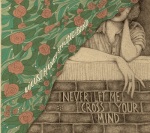 The second album from Locust Honey String Band is an interesting proposition; singer and fiddler Chloe Edmondstone has paired up with guitarist and singer Meredith Watson to form the core of the band and they’re supported on the album by Andy Deaver Edmondstone (bass) and Hilary Hawke (banjo) and Ariel Dixon (banjo and vocal) to produce “Never Let Me Cross Your Mind”, an album that’s a three-way split between Chloe Edmondstone originals, traditional instrumentals and covers of country and roots classics. Without the original material this would have been a good album, but the three Chloe Edmondstone songs add a slightly modern twist to the mix of wonderful playing and superb harmonies.
The second album from Locust Honey String Band is an interesting proposition; singer and fiddler Chloe Edmondstone has paired up with guitarist and singer Meredith Watson to form the core of the band and they’re supported on the album by Andy Deaver Edmondstone (bass) and Hilary Hawke (banjo) and Ariel Dixon (banjo and vocal) to produce “Never Let Me Cross Your Mind”, an album that’s a three-way split between Chloe Edmondstone originals, traditional instrumentals and covers of country and roots classics. Without the original material this would have been a good album, but the three Chloe Edmondstone songs add a slightly modern twist to the mix of wonderful playing and superb harmonies.
Original songs apart, this is an album that’s firmly rooted in the Appalachian String Band tradition; this is very much music for dancing as well as listening, perfectly demonstrated by the relentless energy and flawless execution of the three traditional instrumentals, “Boogerman”, “Logan County Blues” and “McMichen’s Breakdown” which are neatly spaced throughout the album. The three originals, “When the Whiskey’s Gone”(featured in the new Richard Gere film “Time out of Mind”), “Horse Drawn Buggy” and “How You Must’ve Felt” are all taken at different tempos but share the common country/roots theme of the unreliable man, and are spaced out across the album, breaking up the covers into small clusters including a couple of Carter Family songs to show off the harmonies, a very dark take on “Henry Lee” and a George Jones song about drinking (no kidding).
It’s unfortunate that the very sound of Locust Honey String Band will alienate some of the unenlightened, because the swirling interplay of fiddle and banjo (and sometimes guitar) and the achingly perfect keening harmonies are things of great beauty which should have a place in anyone’s musical palette. Recording engineer Joel Savoy has managed to capture the intimacy and the balance of the instruments and voices perfectly, creating a sound that’s somewhere between studio precision and a raw live feel.
My only reservation is that however good the recording, this is music for live performance; it’s supposed to make everyone in the room sing along, tap their feet and get up and dance. The only way to really get the full effect is to see Locust Honey String Band play live and you can do exactly that on their upcoming UK tour (details on the band’s website).
“Never Let Me Cross Your Mind” is out now on iTunes.
Last Friday I had the opportunity to spend some time with the legendary Southside Johnny before the final show of his UK tour, featuring Gary “US” Bonds, at Shepherds Bush Empire. He was entertaining and engaging (as always):
AM – We did an interview here three and a half years ago and at that time you spoke to me about this acoustic thing that you might or might not be doing, which was really big news at the time and that’s happened now, so how’s that going?
SJ – It’s really good, it’s a fun thing. It’s really stripped down; we travel in a van together, we have breakfast in the morning as a band (there’s only six of us, with the road manager) and we set up our own equipment and tear it down and it really feels like the old days when you used to have to do that. It was a complete commitment to the whole day of travel, set up, play, tear down and travel again and even though I’m kinda long in the tooth I really enjoy it because it seems so organic and basic; there’s no star turns at all. I love playing acoustic music and it gives us a chance to play George Jones and Emmylou Harris and Bob Dylan and Tom Waits and some Bruce in a different format.
AM – You mentioned a few country artists there; you’ve always been a country fan haven’t you?
SJ – Yes I liked country when I was very young. What I didn’t know is that my mother, way back in the thirties when the ukulele was the big thing, she bought a ukulele from Sears Roebuck and she would sit on the porch with her father (her mother had died young) and some neighbours, and they would sing country songs, so I guess it’s in my blood, it’s the Irish part of me.
AM – I’ve heard you play “He’ll Have to Go” (country classic made popular by Jim Reeves) at The Astoria, I think.
SJ – Well, Soozie Tyrell, who plays violin with Bruce, she has a country band in New York City, and I would go up and do lots of songs with her because they’re real singer’s songs, they’re story songs with great melodies so it’s fun to make that kind of music.
AM – The old Jukes revolving door seems to have slowed down a little…
SJ – Not too much. We’ve got a new saxophone player, John Isley; I think (drummer)Tom Seguso’s been over here.
AM – At the time of the last interview, Joey (Stann, tenor sax) and Ed (Manion, baritone sax) were still with you but they’re obviously off doing other things now. There seems to be lots of side projects going on as well now that the New York Horns have made a record.
SJ – These days it’s a lot easier to make a record for a little money and it’s also easier to manufacture; for a buck apiece you can make as many CDs as you want and there’s a profit margin once you’ve paid for the studio time and the musicians and all the rest of it. I’m lucky that Jon Bon Jovi lets me use his studio but, even if he didn’t, studio time’s not as expensive as it used to be, home recording’s easier and the internet makes it easy to get distribution to all your fans round the world. It’s a good time to be a musician because you can do all the little things you want to do without incurring great expense.
AM – Did the side projects always happen to a certain extent; do we just hear about them more because of social media?
SJ – We’ve always done those things; Bobby (Bandiera, guitar, now playing with Bon Jovi) and I went out for months, here and there, doing a lot of charity gigs and they put us on a plane, in business class, just him and me and a guitar and harmonicas. We went all over and played charity things and it was just a chance to play in hotels and every little place you could find and it was a lot of fun because it was no stress.
AM – I saw you at Sheffield City Hall in 1995, I think, just the two of you doing the stripped back thing and it was a great night.
SJ – Well, if you have confidence in what you’re doing and you have material you think you can accomplish with just a guitar and a harmonica it’s a chance to explore all that too. Years ago Bobby, Rusty Cloud, David Hayes and I played in Paris at the Chesterfield Club. We did a two-week stint there with very little publicity and we rode the Métro and that was a lot of fun too. We all stayed in the same hotel, this funky little place and it was two weeks in Paris. I’m lucky I’ve had the chance to do those things and just explore what making music means other than pedal-to-the-metal trying to earn a living. I can do just about anything I want now. I’m never going to be rich, I’ve known that from the very beginning so there’s not a great stress to be a big star and make a lot of money; I make a living and that’s all I want. I just want to be allowed to do whatever kind of music I want to make.
AM – I was going through some of my very old Jukes records today and it struck me that after Billy Rush left, you got much more involved in the songwriting process; there’s not a lot of your songs on the early albums.
SJ – I was a writer back then but I would write certain things with certain people but the bulk of the song would be theirs and I’d say “forget it, I don’t want to have anything to do with it”. I wrote with Billy but I don’t have the kind of ego that I need to see my name on the album, but now with Jeff and Bobby the songwriting is really a collaboration so I get to write a lot of lyrics that I find interesting like “Into the Harbour” and “Winter in Yellowknife” and stuff like that which is not the norm for romantic love songs.
AM – On “Pills and Ammo”, it struck me that your name’s on every track as a writer. Do you have a certain way of working; do you do the lyrics and Jeff does the music?
SJ – It’s pretty much that way except that if I come up with a musical idea we’ll explore it and he helps me with lyrics; it’s a real collaboration in other words. I’ll come with an idea, a whole lyric and I’ll say “I think it sounds like this” and he’ll find a way to make it sound like what I want, but then he’ll say “what about this…” and we really try to bounce ideas off each other.
AM – I know Jeff’s a big fan of Squeeze and Difford and Tilbrook wrote in that way as well.
SJ – I’m a big Squeeze fan too.
AM – About your audiences; you’ve retained a very loyal audience in the UK. In the US, are the audiences different?
SJ – Well, they speak English. There’s people who come and see us a million times and there’s people who come and see us for the first time and usually we can win people over. It’s the energy and a lot of the music is made to lift you up so it’s not some shoegazer and it’s not some egomaniac, it’s really just music. I think one of the things that keeps people coming back is that it’s never the same night after night and I don’t know where it’s going to go and tonight’s going to be like that too because we’ve got Gary Bonds and we know what we’re going to do but when we get on stage, that may change.
AM – I’ve been watching Billy Walton live for a while and I’ve noticed that his crowd seems to be getting younger. I’ve seen teenagers at his shows but I’ve also seen people in their twenties who know all of the songs. I just wondered if that was happening with The Jukes.
SJ – We do get a lot of younger people; we had a bunch last night in Holmfirth, but we have our loyal fans and they’re the ones that usually get the first tickets and they’re older, but they bring their kids and some of them bring their grand-kids but anybody who’s willing to give us a shot we’re willing to play for as long as they come and have a good time and just enjoy themselves.
AM – November used to be the traditional time for a Jukes tour but the last couple of years you’ve been over during the summer. I’m guessing that’s because of festivals.
SJ – Yes. This year especially, because we had the Cornbury Festival to start it and we’re ending with Bospop in Holland so we had two festivals and we put a bunch of gigs in between and those get to be the anchor gigs. Unfortunately there’s new taxes in England, Foreigner Entertainer Tax (FET) and Hood, who settles everything got hit with it the other night and they wanted £1,400 for FET. Nobody knew exactly what it was but it’s legitimate and all that does is it makes it harder for bands like me to come over here; you can only lose so much money. On the one hand I guess they need the tax money but if they really need that, they should get all those people who hide their money offshore and let us poor bands try to play a little music.
AM – And a lot of musicians are hiding money offshore.
SJ – Well I’m not hiding any money; my money comes and goes and I get to see it as it goes past and that’s about it.
AM – Going back to the festivals, what’s the biggest gig you’ve ever played?
SJ – Probably Knebworth with Led Zeppelin. We did two shows; we did the first one, flew home and did a show in Washington DC, flew back and did the second show at Knebworth and flew home again, if I remember rightly, so it was a lot of flights. And we played about forty minutes but it was fun, it was a unique experience and we met some good people over here.
AM – As far as I can remember, and I was a long way away from the stage, it seemed like you got a pretty good response that day.
SJ – It seemed like that; of course we didn’t the full power that the headline act got (we don’t do that, if somebody opens up for us they get full power, but I’m not ever worried about a band opening up for us, I hope they do well). But I thought Led Zeppelin was terrible; there was no bass in the mix in the audience.
AM – That’s all the serious stuff but I’ve got couple of other questions for you. You’ve now got a huge body of work to choose from when you play; is there anything you feel can’t be left out?
SJ – Well, there’s nothing that can’t be left out, but I’m not there to just indulge myself, I’m there to give people what they want too and you split the difference. I know they want to hear “I Don’t Want to Go Home” and “The Fever” and “Trapped Again” or “Talk to Me” or “This Time It’s for Real” or “Love on the Wrong Side of Town” or whatever and you try to include those but when you twenty-two, twenty-three songs, there’s plenty of room for you to do what you want too. There are times when I say “I’m sick of this song, I’m not doing it” and it lasts for few months then it’s back in.
AM – Here’s one from my sister, who’s a big fan. Is there a song that makes you cry?
SJ – There’s a lot I guess. I’ve got some that I’ve written but Alison Krauss does a song called “I Can Let Go Now” which I think was written by Michael McDonald and it just kills me because I relate it to my mother. I don’t think that’s what it’s really about but for me it is and I just can’t listen to that song. There’s a lot; there are things that really touch me. I wouldn’t be doing if I didn’t get emotionally involved. When I was young and heard certain songs, I either got happy or excited or even felt sexy or touched, and to be part of that tradition is an amazing thing, but I’ve never really lost the idea that if someone sings a great song and really means it then I can get lost in the emotion.
AM – I find it really difficult to listen to “Many Rivers to Cross” after the version Jeff did here in 2010.
SJ – He really puts his heart and soul into it.
AM – Finally, hoping for another scoop, have you get anything in the pipeline?
SJ – Well, Jeff and I have written most of the songs for the next Jukes album; when we get it finished, I don’t know. We’re hoping to get in the studio, perhaps this winter and get it out some time next year. I’d love to get it out by Christmas but that’s just not gonna happen, and I’ve written some songs for a new Poor Fools acoustic thing and I’ve got a couple of other projects in mind too. I could retire if I wanted to, but then what would I do? I’d sit around the house, get fat and drink myself to death, and I can do that on the road.
AM – Johnny, many thanks for making the time for the interview.
SJ – My pleasure, any time.


